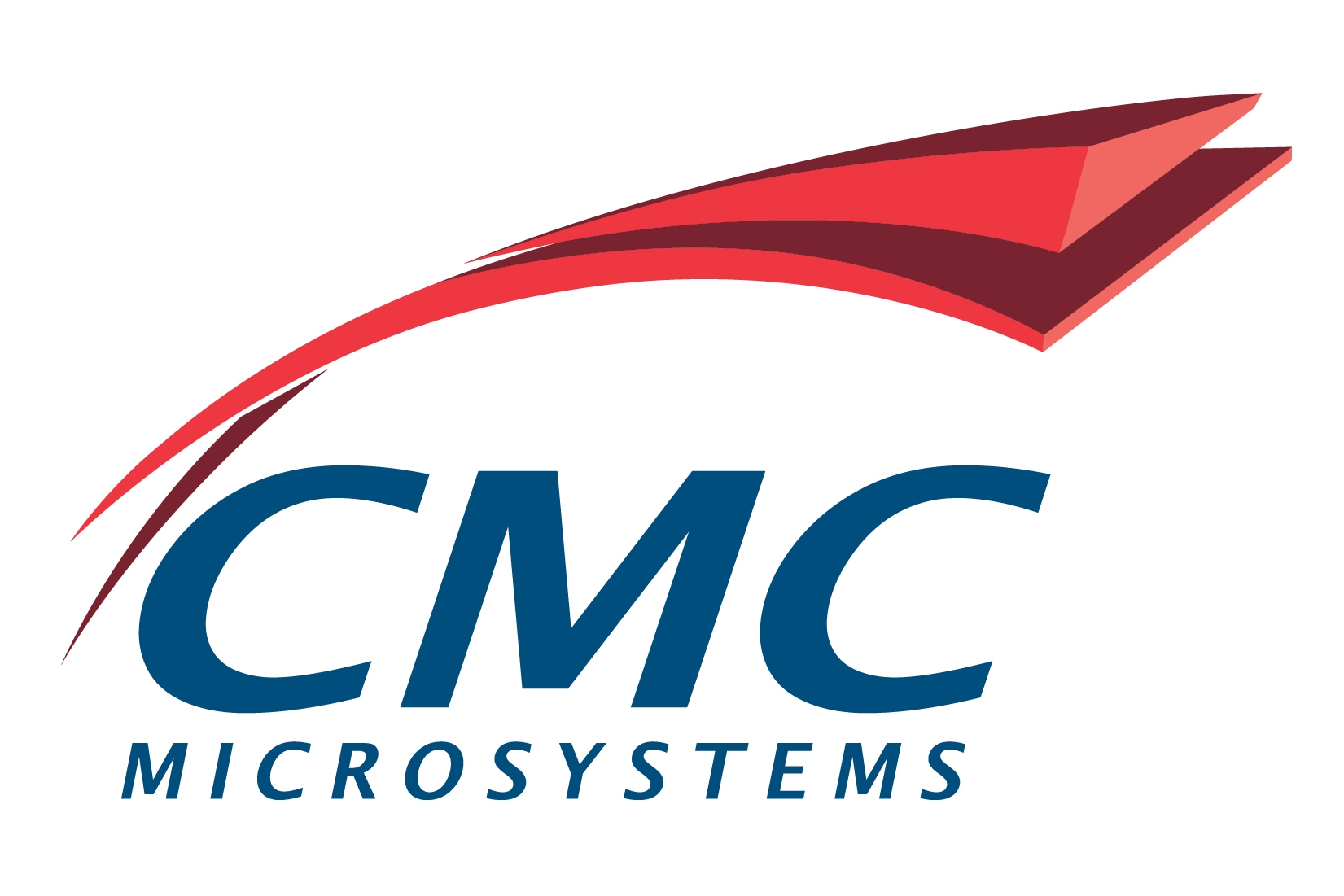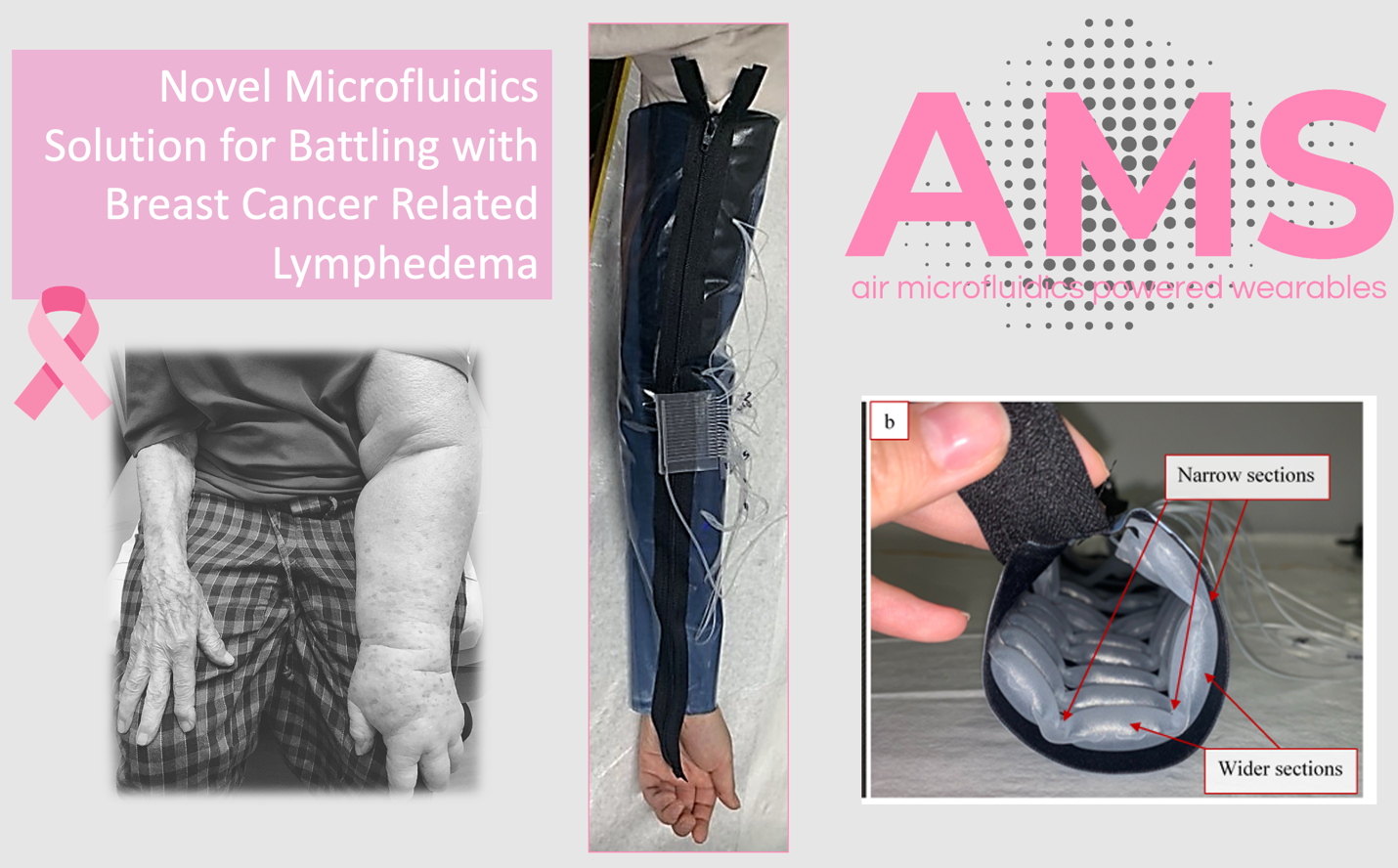Two University of Waterloo researchers are applying their work in microfluidics to help breast cancer survivors cope with collateral damage from their treatment.
Run Ze Gao and Dr. Carolyn Ren have developed a wearable, next generation pneumatic massage sleeve for patients with breast cancer-related lymphedema, which is caused by accumulation of fluid in the arm. It leads to swelling, and over time, increased pain and disability. The condition is often chronic and affects more than 50 per cent of breast cancer survivors who had lymph nodes removed or damaged in their breast cancer treatment.
Gao and Ren say their sleeve is lighter and less restrictive than the bulky systems currently used to massage the arms of lymphedema sufferers to get the excess fluid flowing through their lymph vessels.
The lymphatic system, part of the immune system, is a network of small, bean-shaped organs called lymph nodes. It carries lymph, a clear, protein-rich fluid, through the body, draining waste and helping to fight infection. When lymph nodes are removed during breast cancer surgery or damaged by radiation treatment, it can block the flow of lymphatic fluid, which pools in the affected arm.
Ren is a professor in Waterloo’s Department of Mechanical and Mechatronics Engineering and director of the Waterloo Microfluidics Laboratory. Gao is a doctoral student in her lab.
They collaborated with kinesiologists (Dr. Clark Dickerson, Canada Research Chair in Shoulder Mechanics and his Master’s student and certified lymphedema therapist, Jacqueline Kormylo) who work with patients who suffer from lymphedema. Studies have found that patients describe the condition as demoralizing, disfiguring and disabling. It can also lead to infection.
There are several options for treatment, including manual lymphatic drainage, a process delivered by certified lymphedema therapists or mechanical massage to move the fluid upwards and keep it flowing through the lymphatic system. The current state-of-the- art devices for home treatment weigh several kilograms, cost thousands of dollars and require patients to stay in one place. Research has shown that many women with lymphedema don’t use them because they are restrictive and uncomfortable.
Ren and Gao’s goal was to develop a lighter, portable, cheaper and more effective active pneumatic massage sleeve that the patients would be comfortable wearing and could use on the go.
“It has been rewarding to work on a medical issue that makes life more difficult for many women who already faced the challenges of breast cancer treatment.”
Their device uses a series of balloons that are inflated in pre-set sequences that closely to massage the fluid upwards and prevent it from flowing back. It mimics manual lymphatic drainage.
“Microfluidics has always been used in pharmaceutical and drug discovery, in the chemistry sectors and for lab-on-a-chip. We used air microfluidic fundamentals and microfabrication techniques to multiplex the performance and thus miniaturize the control box so it enables the same performance as the existing bulky, state-of-the art devices, but allows the sleeve to have the esthetics and fashion that patients want to put on their body,” says Gao.
“We made it comfortable, sleek and fashionable,” he says.
Their prototype weighs about as much as a smart phone and is expected to cost about $250, far less than the over $1,000 price tag for current devices, says Gao.
He and Ren founded a start-up, Air Microfluidic Systems, last year. Earlier this year, they won $50,000 in the Falcons’ Fortunes pitch competition for cancer innovations hosted by FACIT, the gateway to the cancer research pipeline in Ontario.
They say CMC Microsystems helped them access simulation and design software.
“Thanks to CADpass, we have access to COMSOL, Solidworks and Altium that we use on a daily basis to improve our microfluidic systems,” says Gao.
Both Ren and Gao say it has been rewarding to work on a medical issue that makes life more difficult for many women who already faced the challenges of breast cancer treatment. They are now refining the prototype with input from colleagues who work with lymphedema patients.
“I hope we can help people,” says Ren.
July 2021

